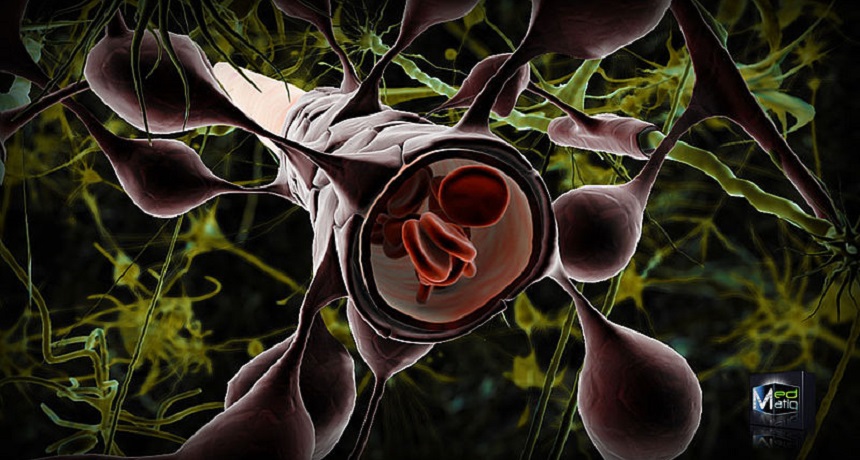Scientists Say: Blood-brain barrier
There’s a thin layer of cells between your veins and your nerve cells

The cells you can see carefully surrounding this blood vessel are a representation of the blood-brain barrier, the gatekeeper of your brain.
Ben Brahim Mohammed/Wikimedia Commons







